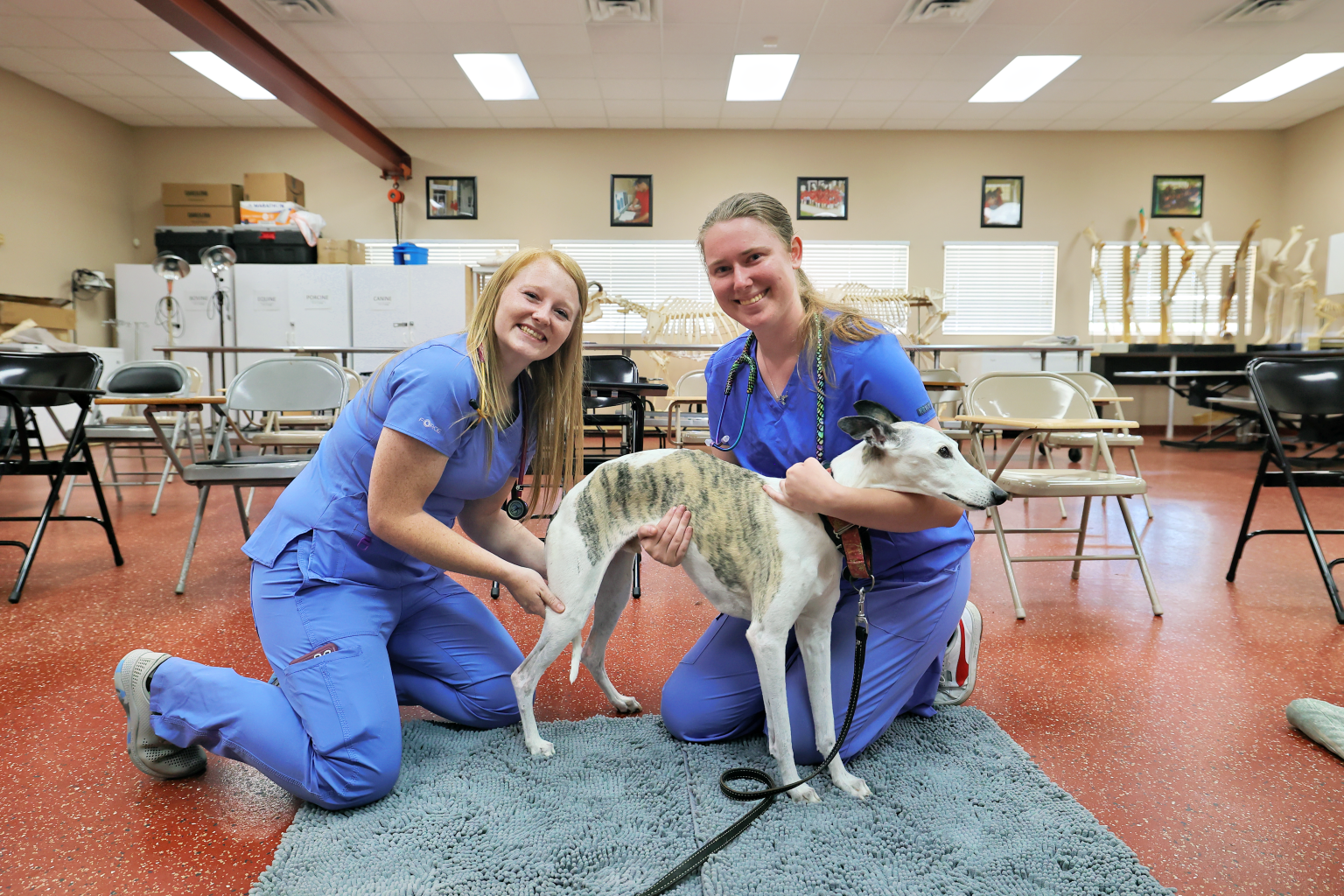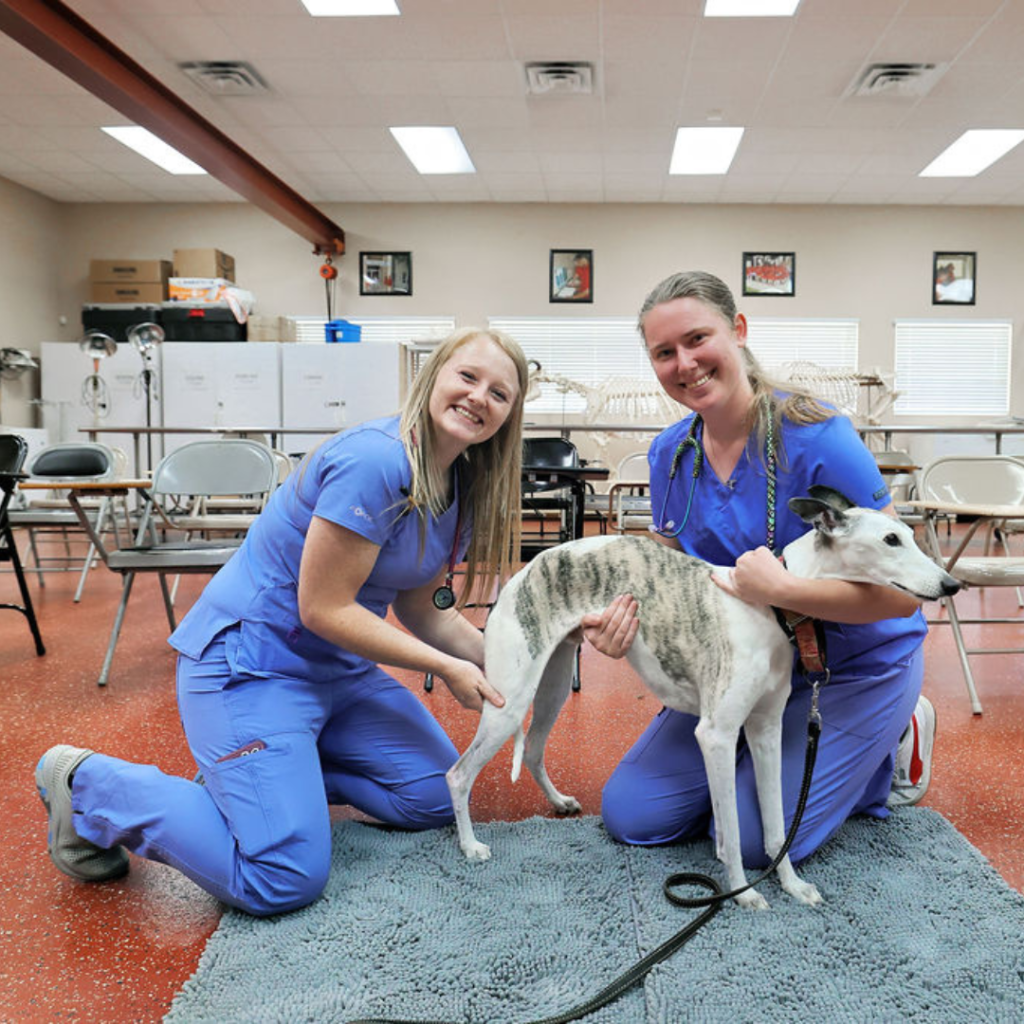
How to Write a Vet School Personal Statement
Personal statements are one of the first big steps towards becoming a vet, but how do you write one? Find out in our detailed guide.
Last updated: October 10, 2024
How to write a veterinary school personal statement
Interested in a career as a practicing veterinarian? If so, it’s important to know that admissions for veterinary school programs, such as the Doctor of Veterinary Medicine (DVM) Program at St. Matthew’s University School of Veterinary Medicine, can be very competitive. So it’s extremely important to do everything you can to prove that you are an exceptional candidate, which certainly includes writing a great vet school personal statement.
Today, we’ll look at how to write a personal statement for veterinary school, key items to include and why nailing your personal statement is important.
Why we have to write personal statements
Your personal statement for veterinary medicine is your chance to add a personal touch to your application and make yourself stand out from the crowd. While your complete application will list all of your accomplishments, educational background and experience, your vet personal statement is where you tie everything together in a cohesive story, and also where you are encouraged to highlight your passion, personality and enthusiasm for animals and veterinary medicine. Furthermore, you can mention anything that doesn’t fit into the other sections of your application and reinforce how you meet the admissions requirements.
You’ll introduce yourself and explain why you’ll be a great fit for the program, touch on what has inspired you to further your studies and share why you think you are a good candidate to become a veterinarian. You might also want to include what you like about the particular program, and how you think it will enrich your knowledge and understanding of veterinary medicine.
This means that when you get an interview for admission, the admissions officer should already know a bit about you, which allows you both to jump straight into discussing more in-depth and information questions.
Demonstrate your passion for animals
It’s important to use part of your statement to highlight for the admissions team why your passion for animals would make you an excellent veterinarian.
In order to uniquely demonstrate your passion for animals, try to think outside of the box. Don’t just talk about family pets. Mention times you’ve been proactive, hands-on and gained experience with animal care. This might include helping with the birthing season on a local farm, volunteering in kennels or helping strays find foster homes in animal shelters.
It’s also important to specify what type of animals you have interacted with. Did you grow up riding horses and love tending to large mammals? Or did your family raise small animals? Whatever your particular interest in the veterinary world, be sure to add it. Schools like to see students who have a plan for where to specialize and continue their education.
Of course, don’t forget that most vets have to work with people too, so it’s a good idea to include something that shows you can work as part of a team or with clients. Customer service, leadership experience and care initiatives are also valuable things to include.

Highlight all relevant experience
Whatever you’ve done for animals outside your normal household, include it, especially if it’s something related to wellbeing and health. Even better, if you can remember a particular interaction that made you want to be a veterinarian, be sure to highlight it. Even if it’s a relatively small anecdote, the admissions team likes to get a real sense of who you are as both a person and aspiring veterinarian.
Your application will generally include your experience and qualifications, but your vet school personal statement is where you can say why your experience is relevant to the program. When you’re planning your statement, start by noting what experience you have and what transferable skills you have gained from those experiences. Then find ways to tie those skills to animal care. For example, if you’re an empathetic person who has worked in customer service, you can relate this to dealing with clients at a standard vet practice. If you have experience running a social group, this ties into leadership skills, teamwork and the ability to proactively pursue your passions.
Remember, you’ll have gained invaluable experience from almost everything you do, whether that’s education, work, volunteer roles or hobbies. You just need to think about how it is relevant to what you want to do next.
Set yourself apart from the crowd
First, you should try to think about what makes you unique. Consider the things you’ve done that may be different/unusual or experiences you’ve had that stand out as formative, as they relate to your veterinary goals. Remember that you’ll be competing for a seat against people from all over the world, so even things you consider to be basic may be unusual compared to other applicants and worth sharing, as long as they’re authentic and related to your passion.
Just like in the previous section, think about how your background gives you a different perspective or relevant skills. Try to tie it into the topics you’ll be learning in vet school and the challenges you would face in your daily life as a veterinarian.
While you might want a large portion of your statement to be positive, you can also bring up any difficulties you’ve had and how you’ve used problem-solving skills and resourcefulness to overcome them. It shows that you’re willing to go the extra mile to achieve your goals, which suggests you’ll be a focused and dedicated student.
You should also strive to be relatable and personable. Vet school committees will expect you to remain professional and precise in what you say, while keeping word limitations in mind. However, you should aim for a conversational, friendly tone. Your personal statement is about you, so it should give the admissions committee an insight into your personality. Try to find a happy medium, where you don’t sound too stiff and formal, but also don’t lean towards unprofessional.
Preparation is key
There are a lot of different things you will want to cover in your personal statement for veterinary medicine, and it’s more than simply a ‘why I want to be a veterinarian’ essay. That’s why it’s vital to prepare and plan your statement before you write it.
Just like any other assignment, you should break the statement down into sections. Make sure you highlight the goal of each section – one section might be talking about your background, and another might be about your relevant experience. Then plan out each section with some key points to include, such as the skills your experience has provided. Then you can write the actual content without wavering too much – and you definitely don’t want to waste words.
Afterward, be sure to proofread it thoroughly. If you can, you should ask someone else to read it too. Ask them if it makes sense, whether it’s engaging and if there are any errors (grammatical or factual).
One final note is to aim precisely for the required word count. If the limit is 500 words, as it is at St. Matthew’s School of Veterinary Medicine (SMUSVM), aim to write just under that many words (490 for example). Furthermore, ensure that everything you share is clear, concise and relevant; you want to avoid the appearance of writing to make it to the word count.

Studying at St. Matthew’s University
If you’re planning to apply to SMUSVM and have any questions at all about the required personal statement, general application process or anything else, please don’t hesitate to contact us.
We’re proud to deliver veterinary education and early-hands on training for aspiring veterinarians and animal health leaders, and we’d love to have you join our community. So if you’re ready to take the next step towards your career in care, apply today!
Still considering what it means to join SMUSVM? Check out this video testimonial from a current student:
If you’d like more info, check out our upcoming enrollment events to see when we’ll be in a town near you!
FAQs About Applying to Veterinary School
Like all such personal statements, you’ll want to highlight your knowledge, skills, abilities, passion and what you’ll bring to the program. Unique for veterinarians however, is that you’ll need to share experiences you’ve had working with and caring for animals. Otherwise, focus on clearly sharing why you want to be a vet and why you think you’ll succeed in veterinary school.
The requirements will vary by school, but the required personal statement length for the St. Matthew’s University School of Veterinary Medicine DVM program is 500 words. No matter the required length however, try to write just under the stated limit. This shows that you have a breadth of information to share, and also that you’re conscientious about following instructions.
The more authentic you are, the better off you’ll be. While it is useful to share unique, interesting and engaging stories if possible, always be true to your personal journey. Write simply and clearly about why you are committed to animal care and passionate about a veterinary career, and the knowledge and experiences you have that will allow you to succeed in veterinary school, and you are bound to make a positive impact on your readers.
Like all writing assignments, it is a good idea to end your statement by tying together everything you’ve shared and ending on a clear conclusion. In this case, that would be making it very clear why your knowledge, passion and experiences will help you succeed in veterinary school and as a practicing veterinarian in the future.
Get in touch for more information